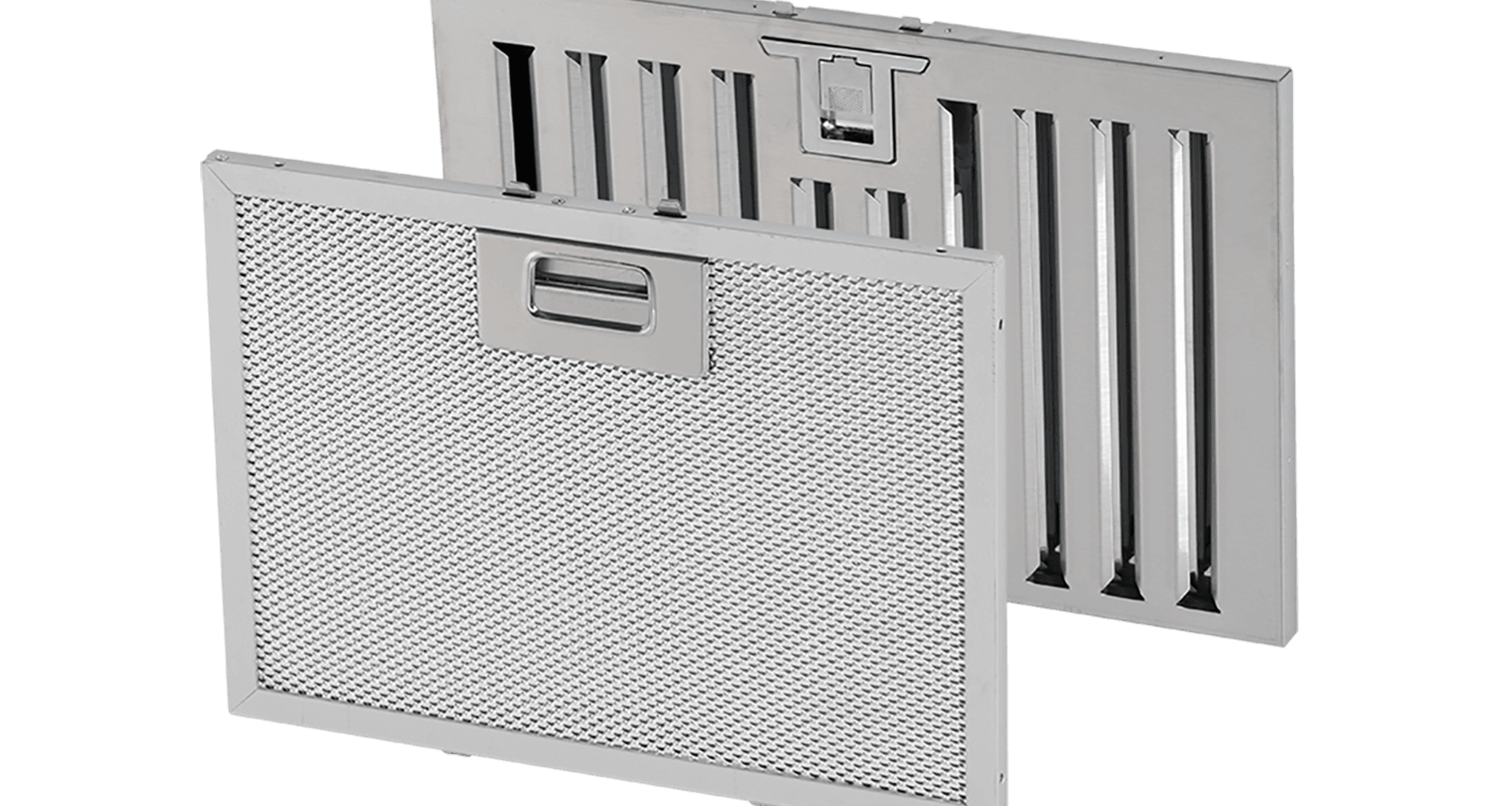Baffles or mesh filters for my rangehood?


Baffles are typically made from aluminium or stainless-steel, shaped into folded metal slats. They work by changing the direction of air flow and obstructing grease-saturated air molecules with sharp turns as they pass through the slats. As the heavy pollutants cannot change direction quickly, they are captured in the channels. By virtue of its design and construction, baffles have greater longevity and commercial aesthetics. These are more commonly used in industrial styled kitchens.
Mesh filters are made of many finely stacked layers of stainless steel or aluminium mesh with cross-directional patterns intersecting one another. As the airborne grease, fats and oils are forced to rapidly change direction through the fine mesh layers, the heavy pollutants get trapped within. Mesh filters are more effective at capturing finer airborne pollutants, while their light material construction mean that they typically perform quieter.
Baffles:
Pros:
- Dishwasher-safe
- Heavy-duty material and construction
- Easy to remove
- Lifetime warranty*
Cons:
- May be noisier than mesh filters
- May drip oil if not cleaned well
Mesh Filters:
Pros:
- Dishwasher-safe
- Captures more fat/oil particles
- Easy to remove
- Lifetime warranty*
Cons:
- May deteriorate faster than baffles
- May need to be cleaned more frequently
* On models purchased from 1 Jan 2017.
